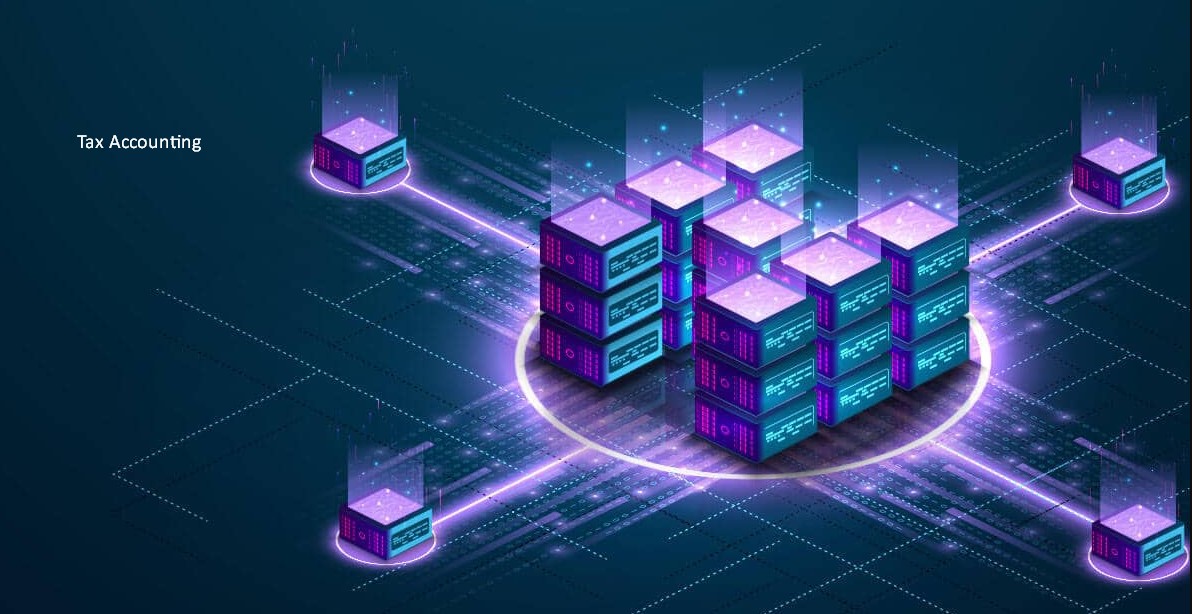
Blockchain Technology Impact on Tax
Blockchain technology is transforming industries globally, and its impact on tax accounting is no exception. As businesses increasingly adopt this technology, tax professionals must understand its implications. Blockchain enhances transparency, accuracy, and efficiency, addressing many challenges in traditional tax accounting processes. This guide explores how blockchain reshapes tax accounting, its benefits, challenges, and the skills professionals need to stay ahead.
Understanding Blockchain Technology
Blockchain is a decentralized digital ledger system that records transactions across multiple systems in a secure, transparent, and tamper-proof manner. Each transaction is verified and stored in a block, linked to the previous one, forming a chain of records that is immutable.
The core features of blockchain include:
- Decentralization: Unlike traditional databases, blockchain is not controlled by a single entity, reducing risks associated with centralized systems.
- Immutability: Once data is recorded, it cannot be altered, ensuring high levels of accuracy and trust.
- Transparency: Authorized users can access records, providing an open and accountable system.
- Automation: Smart contracts allow predefined actions to occur automatically when specific conditions are met.
These features make blockchain particularly suitable for applications requiring precision and accountability, such as tax accounting.
Key Features of Blockchain in Tax Accounting
Blockchain’s integration into tax accounting introduces several game-changing benefits:
- Transparency and Auditability
Tax accounting requires meticulous record-keeping. Blockchain’s transparent nature ensures that all transactions are traceable. Tax professionals can access a clear audit trail, reducing disputes and enhancing trust with tax authorities. - Fraud Prevention
Fraudulent activities like tax evasion and misreporting can be minimized with blockchain. The immutable nature of records ensures that data manipulation is nearly impossible. - Automation through Smart Contracts
Smart contracts are programmable agreements that execute automatically when specific criteria are met. In tax accounting, they can be used for automated VAT calculations, tax withholding, and real-time payments, reducing manual intervention. - Real-Time Data Sharing
Blockchain facilitates seamless, real-time sharing of tax-related data among stakeholders, including businesses, accountants, and tax authorities. This reduces delays in filing and processing taxes. - Enhanced Security
With advanced cryptographic techniques, blockchain ensures that sensitive tax data remains secure. This is particularly crucial for preventing data breaches in a digital age.
Applications of Blockchain in Tax Accounting
- VAT Collection
Blockchain can streamline VAT collection by ensuring accurate recording of transactions. Automated systems can calculate and remit taxes in real time, reducing errors. - Payroll Taxes
For organizations with complex payroll systems, blockchain simplifies tax calculations and deductions. Real-time updates ensure compliance with changing tax regulations. - Cross-Border Transactions
Blockchain enhances the transparency and efficiency of international transactions. Tax authorities can access records of cross-border payments, ensuring proper taxation and compliance. - Tax Filing
Tax returns can be automated using blockchain-based systems. With all financial data securely stored, filing taxes becomes faster and more accurate.
Challenges in Adopting Blockchain for Tax Accounting
While blockchain offers numerous benefits, its adoption in tax accounting is not without challenges:
- Integration with Legacy Systems
Many organizations rely on traditional accounting software. Transitioning to blockchain requires significant updates and investments. - Regulatory Uncertainty
Tax authorities must establish clear guidelines for blockchain-based tax systems. Ambiguities in regulations may hinder adoption. - Cost of Implementation
Implementing blockchain solutions can be expensive. Businesses must weigh the long-term benefits against upfront costs. - Need for Expertise
Blockchain is a specialized field requiring technical knowledge. Tax professionals and organizations must invest in training to leverage its potential.
The Role of Tax Professionals in a Blockchain Era
Tax professionals must adapt to the blockchain revolution to remain relevant. This includes:
- Understanding Blockchain Fundamentals: Professionals need to comprehend how blockchain works and its applications in tax systems.
- Staying Updated on Regulations: As governments develop blockchain-related tax policies, staying informed is crucial.
- Learning New Tools: Familiarity with blockchain platforms and smart contract programming can give tax professionals a competitive edge.
The Importance of Learning Blockchain-Driven Tax Accounting
Tax professionals must stay updated with technological advancements to remain competitive. Enrolling in specialized courses like a Tax Accounting Course can equip individuals with the skills needed to leverage blockchain in tax systems effectively. These courses often include case studies on blockchain integration, providing practical insights into its application.
Future Prospects of Blockchain in Tax Accounting
The potential of blockchain in tax accounting is immense. Governments and organizations are increasingly exploring its use for secure, efficient, and transparent tax processes. For example:
- Blockchain for Real-Time Tax Monitoring: Tax authorities can monitor transactions as they occur, reducing delays and errors.
- Global Tax Harmonization: Blockchain facilitates consistent tax reporting across borders, streamlining international trade.
- AI Integration: Combining blockchain with artificial intelligence can further enhance tax analysis and fraud detection.
Conclusion
Blockchain is set to revolutionize tax accounting by introducing transparency, efficiency, and security. While challenges exist, its potential benefits far outweigh them. For tax professionals, embracing blockchain is not just an option—it’s a necessity. By pursuing specialized education, such as a Tax Accounting Course, professionals can position themselves as leaders in this transformative era.





